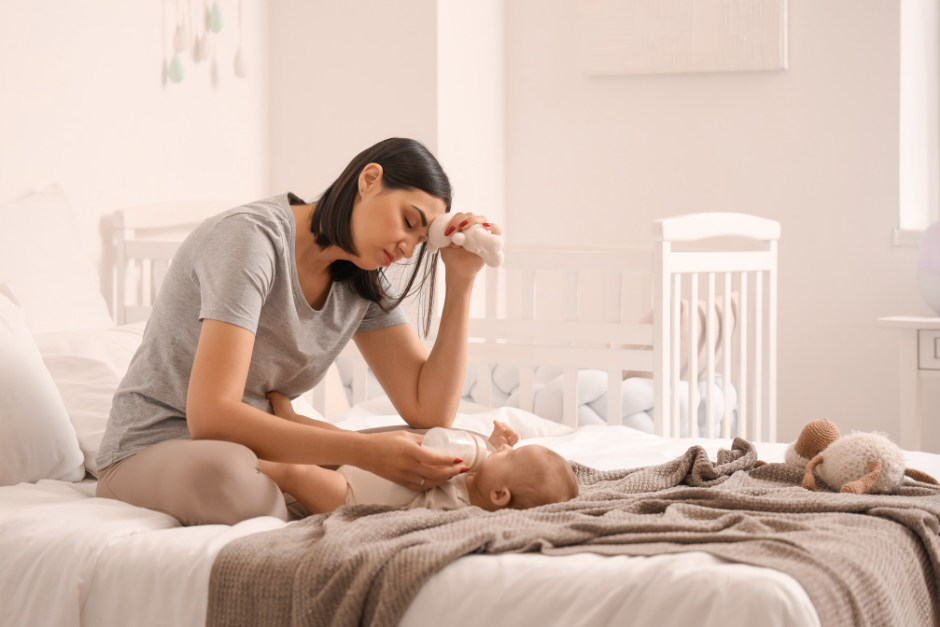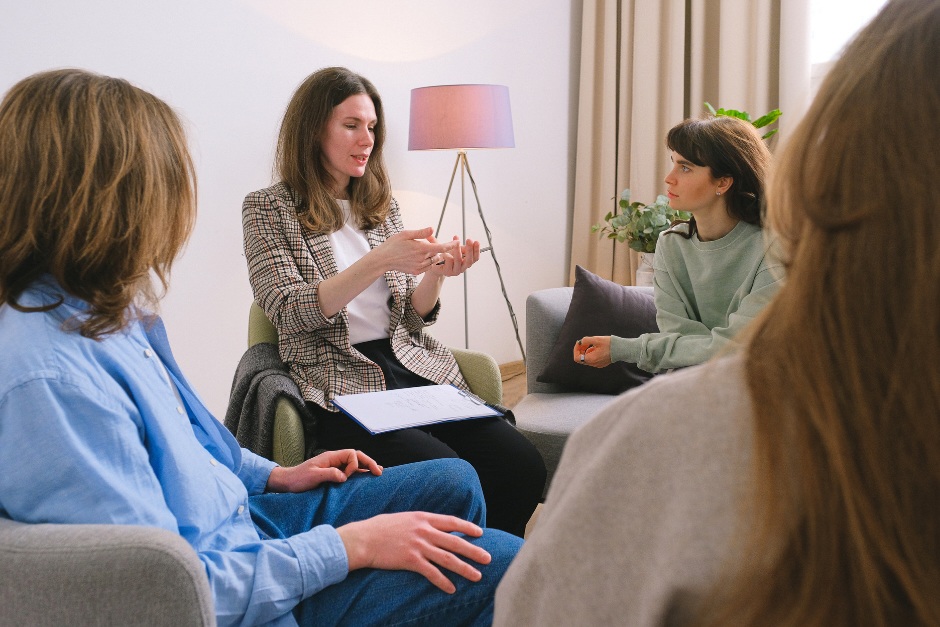Mental Health Awareness for Women
Mental health is a vital aspect of overall wellbeing, yet it’s often overlooked—especially among women. In the UK, women face unique pressures that can impact their mental health, including biological changes, social roles, and economic disparities.
From hormonal fluctuations to the weight of societal expectations, the mental health challenges women face are multi-faceted and deeply intertwined with broader issues in society.
As mental health awareness continues to gain traction, it's essential to shine a spotlight on the specific experiences of women, ensuring that support systems, services, and public dialogue are inclusive and responsive. This blog explores the mental health challenges most commonly affecting women in the UK.

Common Mental Health Issues Faced by Women
Mental health challenges affect everyone, but women often face specific conditions and stressors that make their experiences unique. Understanding the most common mental health issues women face is a crucial step in breaking stigma, encouraging support, and ensuring better access to care.
Depression
Depression is more prevalent in women than men, influenced by hormonal, genetic, and psychosocial factors. In fact, women are twice as likely to experience major depressive episodes. Two types of depression that specifically affect women are postnatal depression and premenstrual dysphoric disorder (PMDD).
Postnatal depression affects up to 1 in 10 women in the UK after childbirth. It’s more than "baby blues;" it can involve intense sadness, irritability, exhaustion, and feelings of inadequacy. PMDD is a severe form of premenstrual syndrome (PMS) that can lead to mood swings, anxiety, and even suicidal thoughts. Both conditions are often underdiagnosed, highlighting the need for increased awareness and access to treatment.
Anxiety Disorders
Generalised anxiety disorder (GAD), panic attacks, and social anxiety are significantly more common in women. Factors contributing to this include hormonal fluctuations, especially during pregnancy or menopause, and the emotional toll of caregiving responsibilities. The societal pressure to "do it all"—career, family, and appearance—exacerbates anxiety.
Eating Disorders
Anorexia, bulimia, and binge-eating disorders disproportionately affect women—especially teenagers and young adults. The cultural obsession with thinness and perfection often fuels disordered eating behaviours. Social media, advertising, and unrealistic beauty standards contribute to body dissatisfaction and poor self-esteem, creating fertile ground for these mental health issues.
Post-Traumatic Stress Disorder (PTSD)
PTSD is often associated with combat veterans, but for many women, it stems from domestic violence, sexual assault, or childhood abuse. Gender-based violence is a significant public health issue in the UK, and the resulting trauma can have lifelong mental health consequences. Women who have experienced abuse may also be more vulnerable to developing anxiety, depression, or substance abuse issues.

Perinatal Mental Health Issues
Mental health challenges during pregnancy and the year after birth can include depression, anxiety, obsessive-compulsive behaviours, and even psychosis. Hormonal changes, fear of childbirth, societal pressure to feel “joyful,” and postnatal isolation can all contribute to this condition. Physical changes as a result of carrying a baby and giving birth can also contribute to emotional problems. The UK's healthcare system is improving in recognising perinatal mental health, but many women still struggle in silence. For help with the physical aspects of the perinatal period, a Mummy MOT can help with post-natal rehabilitation treatment.
Menopause-Related Changes
The menopausal transition can bring about mood swings, sleep disturbances, irritability, and depression. These symptoms are often misattributed to ageing or personal weakness. Menopause also coincides with other life stressors—empty nests, ageing parents, or retirement planning—which can amplify emotional strain. What’s more, this phase of life can come with physical challenges too. Mental health support during this phase is crucial, yet often lacking. A visit to a women’s health physiotherapist can help with physical symptoms.
Book A Women's Physio Consultation Now
Other Contributing Factors
Mental health doesn't exist in a vacuum. For many UK women, challenges within the cultural system shape their mental wellbeing too.
- Gender inequality in pay, career progression, and caregiving duties adds stress and impacts self-worth.
- Many women juggle care responsibilities for children and elderly parents, often with little respite.
- Financial stress, especially for single mothers or part-time workers, can exacerbate anxiety and depression.
- Cultural stigma surrounding mental health remains strong in many ethnic minority communities, discouraging people to seek help.
- Access to care is another hurdle—NHS waiting times can be long, and there’s a lack of gender-specific services.
These conditions highlight the need for more inclusive, accessible, and empathetic mental health care.
Support and Resources Available
Despite the challenges, there are many excellent resources available in the UK to support women’s mental health.
NHS Services
If you are experiencing mental health problems, you can seek support from your GP, who may refer you for therapy, psychiatric assessment, or medication. The NHS also offers perinatal mental health services, including specialist teams that support women during pregnancy and post-birth.
The NHS Talking Therapies programme provides free, evidence-based therapies for depression and anxiety, including CBT (cognitive behavioural therapy). While waiting times can be long, these services are often the first step towards recovery.
Charities and Organisations
- Mind UK offers comprehensive mental health support, advocacy, and local groups.
- Rethink Mental Illness provides information, community services, and peer support.
- Samaritans is available 24/7 at 116 123 for anyone in emotional distress.
- Refuge and Women’s Aid both support women experiencing domestic abuse—critical services for those who are also trying to manage trauma or PTSD.
Community and Peer Support Groups
Peer-led and community-based support can be life-changing. Many areas in the UK host women-only groups focused on shared experiences—whether related to motherhood, trauma recovery, or cultural background.
There are also tailored services for BAME women, LGBTQ+ women, and others facing intersectional discrimination. These groups foster connection, reduce isolation, and empower women to advocate for their own wellbeing.

Workplace Mental Health Resources
More UK workplaces are recognising the importance of mental health. Many organisations have mental health first aiders who are trained to spot early warning signs, and employee assistance programmes (EAPs) offer confidential counselling. Flexible working policies can also ease the pressure for women balancing multiple responsibilities.
Digital Tools and Helplines
For those uncomfortable with face-to-face interaction, mental health apps like Headspace, Calm, or BetterHelp offer guided meditations and online therapy. Helplines such as Shout (text “SHOUT” to 85258) and Anxiety UK (03444 775 774) offer immediate, confidential support.
When and How to Seek Help
Knowing when to seek support is key. If you're feeling persistently sad, anxious, overwhelmed, or disconnected from daily life, it’s time to reach out. Other signs include disrupted sleep, changes in appetite, and loss of interest in things you once enjoyed.
Start by talking to your GP, a trusted friend, or family member. Reaching out is not a sign of weakness—it’s an act of courage. The sooner you seek help, the sooner recovery can begin.
Women’s mental health deserves focused attention and tailored support. Your mental health matters. Whether you’re struggling silently or supporting someone else, remember that help is out there, and healing is possible.
Book A Women's Physio Consultation Now
For advice on your women's health questions, call Magdalena on 07877 017 936 or drop PelviCare an email. Alternatively, you can book an appointment online.
PelviCare Women's Health Physiotherapy is located on the border of Greenwich and Deptford in London, serving women across South London, East London, Essex, Kent and beyond.